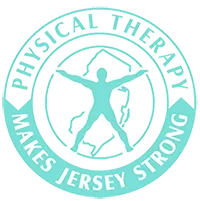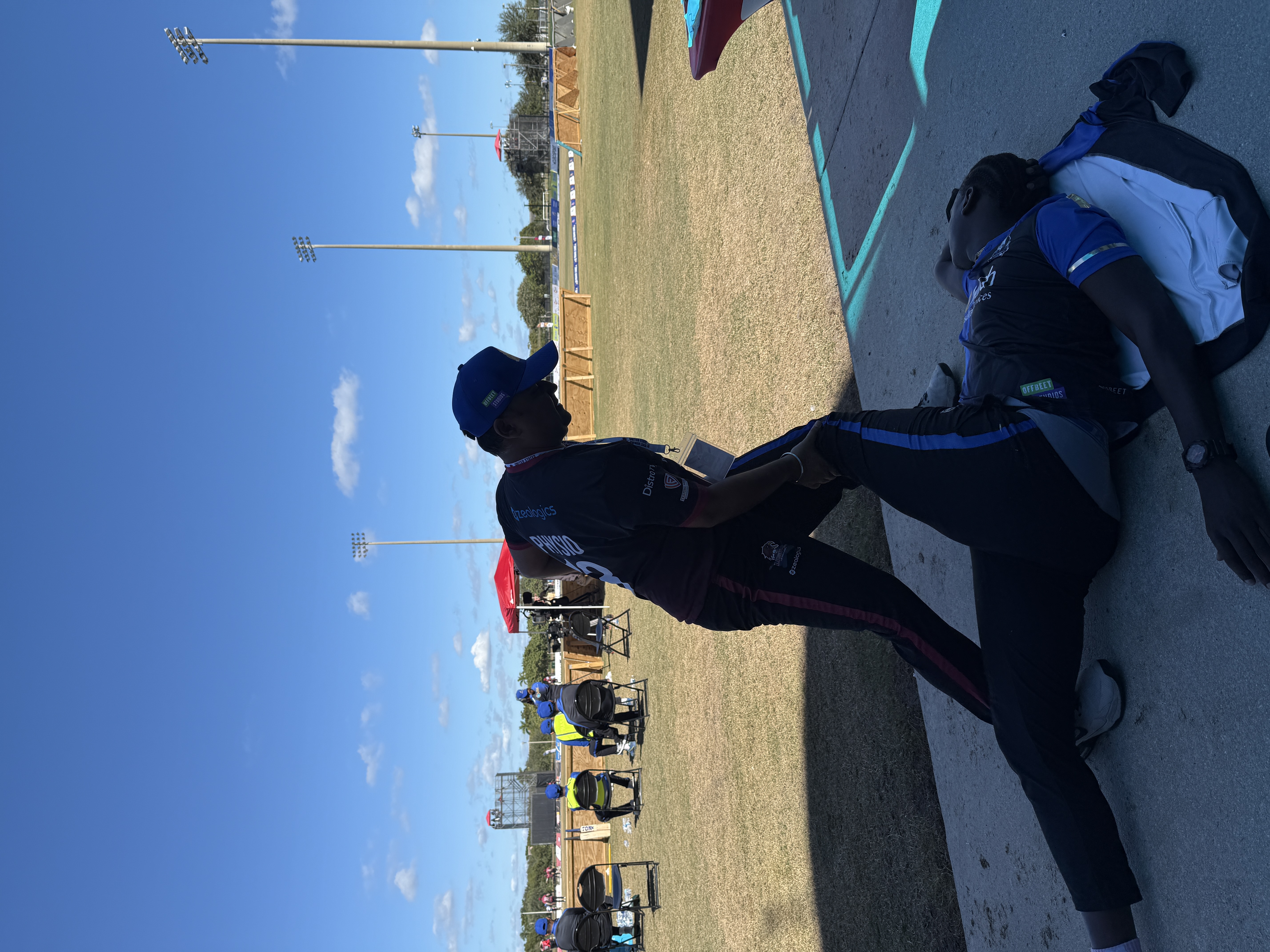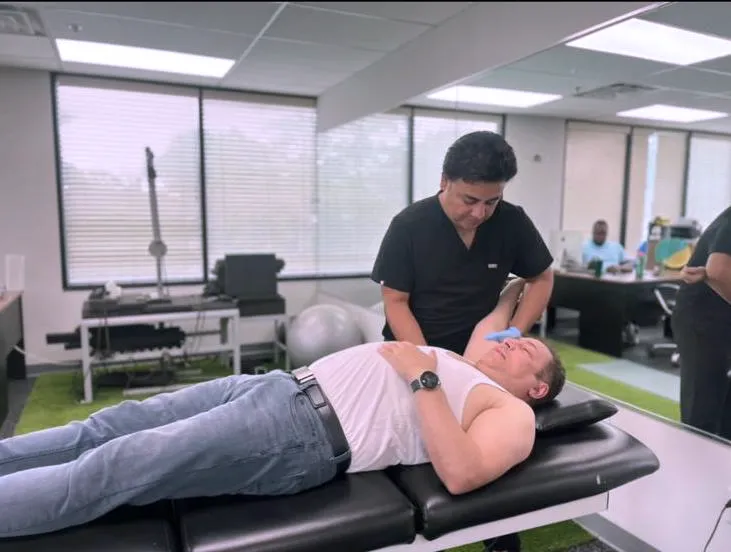New Jersey Rehab Experts
Specializing in comprehensive orthopedic care, New Jersey Rehab Experts offers a wide range of services including Physical Therapy, Sports Physical Therapy, Dry Needling, Chiropractic Care, Neuropathy Treatment, Pain Management, and Manual Therapy. Our state-of-the-art facility is staffed by board-certified therapists dedicated to delivering top-tier care, ensuring you achieve optimal recovery and wellness.
Clinic Located in Jersey City (Newport), Secaucus and Clifton
Genuine Feedback from
Our Patients
Our Affiliations






Explore Our Diverse Range of Disciplines
Discover a world of exceptional care customized for all ages! Our dedicated professionals deliver top-notch medical attention, expert rehabilitative therapy, and warm companion care for adults, seniors, and young patients. Experience personalized healthcare with a heart!

Orthopedic Physical Therapy
Specialized care for musculoskeletal injuries, surgeries, and chronic conditions affecting bones, joints, muscles, ligaments, and tendons.
- Sports injuries
- Arthritis management
- Post-surgical rehab

Geriatric Physical Therapy
Specialized care for older adults, addressing age-related changes affecting balance, strength, mobility, and independence.
- Fall prevention
- Balance training
- Mobility enhancement

Sports Physical Therapy
Specialized rehab for athletes of all levels, from weekend warriors to professionals, focusing on injury recovery and performance enhancement.
- ACL rehab
- Return-to-play testing
- Performance optimization

Vestibular Rehabilitation
Specialized therapy for dizziness, vertigo, and balance disorders stemming from inner ear and balance system dysfunction.
- BPPV treatment
- Balance retraining
- Dizziness management

Men's Health Physical Therapy
Specialized care for pelvic floor dysfunction and related issues, providing discreet, effective treatment for men's specific health needs.
- Pelvic pain relief
- Post-prostatectomy rehab
- Urinary dysfunction

Motor Vehicle & Work Injury Rehab
Specialized care for car accidents and workplace injuries, with expert documentation and coordination with insurance providers.
- Whiplash treatment
- Workers' comp cases
- Personal injury claims

Manual Therapy
Hands-on approach using specialized techniques to relieve pain, improve mobility, and accelerate healing naturally.
- Mulligan Mobilizations
- McKenzie Method
- Myofascial Release

Dry Needling
Modern technique using thin, sterile needles to target trigger points, releasing muscle tension and restoring normal function.
- Back & neck pain
- Headaches & migraines
- Sports injuries
Ready to start your recovery journey?
Our expert therapists are ready to help you live pain-free and regain your mobility.
Our Advantages
Specialized Programs for Every Need
From orthopedic rehab and sports therapy to vestibular, pelvic health, and post-injury recovery, we provide comprehensive, patient-focused solutions.
State-of-the-Art Techniques & Technology
We use cutting-edge treatments like dry needling, spinal manipulation, Mulligan & McKenzie techniques, Fit3D scans, Shockwave Therapy , Cupping and more to accelerate healing.
Personalized One-on-One Care
Every patient receives individualized treatment plans with hands-on attention to ensure faster recovery and long-term results.
Trusted by Athletes & Community Leaders
Official providers for multiple cricket teams and a member of respected healthcare associations—our reputation speaks for itself.
Multiple Convenient Locations Across NJ
With clinics in Jersey City, Secaucus, Clifton , and beyond, we’re always within reach—offering flexible scheduling and bilingual support.
Seamless Support for Injury Claims & Recovery
We coordinate care with attorneys, physicians, and insurers for patients recovering from motor vehicle or work-related injuries, ensuring smooth documentation and stress-free rehab.
Meet Our Team

Sunny Thakkar PT, MS ( Exercise Physiologist)
Physical Therapist

Ashish Sinha, PT, DPT
Physical Therapist

Dr. Rohit Farzala PT, DPT
Physical Therapist
About Us


Experience rapid rejuvenation as our specialist team harnesses the power of advanced healing tech to erase pain with ease. We dive deep into your world, assessing every piece of the puzzle—stress at work, life pressures, physical health, nutrition, genes, posture, and even emotional ties—crafting a tailor-made wellness blueprint that's as unique as you are. With our dedicated holistic touch, we don't just treat symptoms; we empower you to embrace a pain-free, harmonious life.
Ask a Question

Finding the Best Physiotherapy Near You: A Complete Guide to Local Services and Support
Finding the Best Physiotherapy Near You: A Complete Guide to Local Services and Support
Are you searching for the best physiotherapy options in your area? Whether you're recovering from an injury, managing a chronic condition, or simply seeking to improve your overall wellbeing, finding the right physiotherapy services can be a game-changer. In today's fast-paced world, navigating local options can feel overwhelming. That's why we’ve crafted this complete guide to help you identify quality physiotherapy near you. From understanding different therapies and treatment methods to evaluating qualifications and specialties, we’ll walk you through every step of the process. Dive in to discover how to choose a physiotherapist who not only meets your needs but also supports your healing journey, empowering you to reclaim your active lifestyle. Let’s embark on this journey together, ensuring your path to recovery is as smooth and effective as possible. Your search for the perfect local physiotherapy service starts here!
Understanding Physiotherapy: What You Need to Know
Physiotherapy, also known as physical therapy, is a healthcare profession focused on the assessment, diagnosis, and treatment of physical impairments, disabilities, and pain. It employs various methods such as manual therapy, exercise, and electrotherapy to restore function, enhance mobility, and improve overall quality of life. Physiotherapists are trained professionals who work with patients of all ages and backgrounds, addressing a wide range of conditions from orthopedic injuries to neurological disorders.
The primary goal of physiotherapy is to support and facilitate your body's natural healing processes. This often involves personalized treatment plans that consider your unique needs, lifestyle, and health goals. Whether you're an athlete recovering from a sports injury, a senior managing arthritis, or an office worker dealing with chronic back pain, physiotherapy can provide targeted interventions to help you regain strength, flexibility, and function.
Physiotherapy is not just about treating existing conditions; it is also a proactive approach to preventing future injuries and promoting long-term health. By educating patients on proper body mechanics, posture, and movement strategies, physiotherapists play a crucial role in helping individuals maintain an active and healthy lifestyle. This holistic approach makes physiotherapy a valuable resource for anyone looking to enhance their physical well-being and prevent potential issues down the road.
The Importance of Local Physiotherapy Services
Access to local physiotherapy services is essential for several reasons. Firstly, it provides convenience and accessibility, allowing you to attend regular sessions without the hassle of long commutes. This is particularly important for individuals with mobility issues or those recovering from surgery, as frequent travel can be challenging and counterproductive to the healing process.
Local physiotherapy services also offer a sense of community and personalized care. Physiotherapists who operate within your area are likely familiar with the local lifestyle and common physical challenges faced by residents. This familiarity enables them to tailor their treatment approaches to better suit your specific needs and circumstances. Additionally, building a relationship with a local physiotherapist can foster a supportive and trusting therapeutic environment, which is crucial for effective rehabilitation.
Moreover, local physiotherapy services can facilitate continuity of care. In cases where you may need to see other healthcare providers, such as orthopedic surgeons or general practitioners, having a local physiotherapist ensures seamless communication and coordination. This integrated approach helps in creating a comprehensive and cohesive treatment plan, enhancing the overall effectiveness of your recovery journey.
How to Identify Your Physiotherapy Needs
Before embarking on the search for the best physiotherapy near you, it's essential to identify your specific needs. Begin by assessing your symptoms and the underlying cause of your discomfort. Are you dealing with acute pain from a recent injury, or is it a chronic condition that has been affecting you for a while? Understanding the nature and duration of your symptoms will help you communicate more effectively with potential physiotherapists.
Consider your personal health goals and what you hope to achieve through physiotherapy. Are you looking to regain mobility after surgery, improve your athletic performance, or manage a long-term condition like arthritis? Clearly defining your objectives will guide you in selecting a physiotherapist who specializes in the area most relevant to your needs. For example, some physiotherapists may have extensive experience in sports rehabilitation, while others might focus on geriatric care or neurological conditions.
It's also important to take into account any previous treatments or therapies you have undergone. Reflect on what has worked well for you in the past and what hasn't. This self-assessment can provide valuable insights into the type of treatment approach that may be most effective for you. By understanding your own body and its responses to different therapies, you can make a more informed decision when choosing a physiotherapist.
Key Factors to Consider When Choosing a Physiotherapist
When choosing a physiotherapist, several key factors should be taken into consideration to ensure you receive the best possible care. One of the most important aspects is the physiotherapist's qualifications and credentials. Verify that they are licensed and registered with relevant professional bodies, as this ensures they have met the required standards of education and practice. Additionally, consider their level of experience and any specializations they may have, as this can greatly influence the quality of care you receive.
Another crucial factor is the physiotherapist's approach to treatment. Different physiotherapists may employ various methods and techniques, so it's important to find one whose approach aligns with your needs and preferences. Some may focus more on manual therapy and hands-on techniques, while others might emphasize exercise-based rehabilitation or the use of advanced technologies like ultrasound and electrical stimulation. Understanding their treatment philosophy can help you determine if their methods are a good fit for your condition.
Communication and rapport are also essential when selecting a physiotherapist. You should feel comfortable discussing your symptoms, concerns, and progress with them. A good physiotherapist will listen attentively, provide clear explanations, and involve you in the decision-making process. Building a positive therapeutic relationship is key to achieving successful outcomes, as it fosters trust and collaboration throughout your treatment journey.
Researching Local Physiotherapy Clinics: Tips and Tools
Finding the right physiotherapy clinic in your area requires thorough research and the use of various tools. Start by seeking recommendations from trusted sources such as friends, family, or your primary care physician. Personal referrals can provide valuable insights into the quality of care and the overall experience at specific clinics. Additionally, consider checking online reviews and ratings on platforms like Google, Yelp, and HealthGrades to gather a broader perspective from other patients.
Utilize online directories and professional associations to compile a list of potential physiotherapy clinics. Websites such as the American Physical Therapy Association (APTA) or the Chartered Society of Physiotherapy (CSP) offer directories of registered physiotherapists and clinics, making it easier to find qualified professionals in your area. These directories often include detailed profiles, including qualifications, areas of specialization, and contact information.
Once you have a list of potential clinics, visit their websites to gather more information. Look for details about their services, treatment approaches, and the qualifications of their staff. Many clinics also provide patient testimonials and case studies, which can offer further insights into their expertise and the outcomes they've achieved. Additionally, consider reaching out to the clinics directly to ask any specific questions you may have and to gauge their responsiveness and customer service.
Questions to Ask During Your Initial Consultation
Your initial consultation with a physiotherapist is an important opportunity to gather information and assess whether they are the right fit for your needs. Prepare a list of questions to ask during this meeting to ensure you make an informed decision. Begin by inquiring about their qualifications, experience, and areas of specialization. Understanding their background will give you confidence in their ability to address your specific condition.
Ask about their treatment approach and what you can expect from the therapy sessions. How do they evaluate and diagnose conditions? What methods and techniques do they use? How long do they anticipate your treatment will take, and what kind of progress should you expect to see? These questions will help you understand their treatment philosophy and whether it aligns with your goals.
It's also important to discuss practical matters such as scheduling, availability, and costs. Ask about their office hours and how flexible they are with appointment times. Inquire about the duration and frequency of sessions and whether they offer any additional services such as home visits or telehealth consultations. Understanding the logistics will help you determine if their services are convenient and accessible for you.
The Role of Reviews and Recommendations in Your Decision
Reviews and recommendations play a crucial role in the decision-making process when choosing a physiotherapist. They provide firsthand accounts of other patients' experiences and can offer valuable insights into the quality of care provided by a clinic. Positive reviews and high ratings are often indicative of a reputable and effective physiotherapy service, while negative feedback can signal potential issues or areas of concern.
When reading reviews, pay attention to recurring themes and specific details about the patient's experience. Look for comments on the physiotherapist's expertise, communication skills, and the overall effectiveness of the treatment. Reviews that mention successful outcomes, improvements in symptoms, and a positive therapeutic relationship are strong indicators of a reliable clinic. However, keep in mind that individual experiences can vary, so consider the overall trend rather than focusing on a single review.
In addition to online reviews, seek recommendations from trusted sources such as friends, family members, or healthcare providers. Personal referrals can provide a more nuanced and detailed perspective, as they come from individuals who know you and understand your needs. Combining online reviews with personal recommendations will give you a well-rounded view of potential physiotherapy services and help you make a more informed decision.
Comparing Treatment Approaches: Manual Therapy vs. Exercise Therapy
When choosing a physiotherapist, it's important to understand the different treatment approaches available and how they may benefit you. Two common methods in physiotherapy are manual therapy and exercise therapy, each with its own set of techniques and goals. Comparing these approaches can help you determine which one may be most effective for your condition.
Manual therapy involves hands-on techniques used by the physiotherapist to manipulate and mobilize the body's soft tissues and joints. This approach is often used to alleviate pain, improve mobility, and restore function. Techniques such as massage, joint mobilization, and myofascial release are commonly employed in manual therapy. This method can be particularly beneficial for conditions involving muscle tension, joint stiffness, and soft tissue injuries.
Exercise therapy, on the other hand, focuses on the use of specific exercises to improve strength, flexibility, and overall physical function. This approach is often used to address musculoskeletal issues, enhance athletic performance, and promote long-term health. Exercise therapy may include stretching, strengthening exercises, cardiovascular conditioning, and functional training. It can be tailored to your individual needs and progressively adjusted as you improve.
Both manual therapy and exercise therapy have their merits, and the most effective treatment plan often involves a combination of both. Your physiotherapist will assess your condition and determine the best approach based on your symptoms, goals, and overall health. Understanding these treatment methods will help you make an informed decision and actively participate in your rehabilitation process.
Insurance Coverage and Payment Options for Physiotherapy
Understanding your insurance coverage and payment options for physiotherapy is crucial in planning your treatment. Begin by reviewing your health insurance policy to determine what physiotherapy services are covered. Some plans may cover a certain number of sessions per year, while others may require a referral from a primary care physician. Knowing the specifics of your coverage will help you avoid unexpected costs and ensure you can access the necessary care.
If your insurance plan covers physiotherapy, inquire about any copayments, deductibles, or out-of-pocket expenses you may be responsible for. It's also important to verify whether the physiotherapy clinic you choose is in-network with your insurance provider. In-network clinics have pre-negotiated rates with insurance companies, which can result in lower costs for you. If the clinic is out-of-network, you may have to pay higher fees or seek reimbursement from your insurance company.
For those without insurance coverage or with limited benefits, many physiotherapy clinics offer alternative payment options. Some clinics provide sliding scale fees based on income, payment plans to spread out the cost, or discounted rates for self-pay patients. Additionally, certain community programs and non-profit organizations may offer subsidized physiotherapy services for individuals in need. Exploring these options can make physiotherapy more accessible and affordable.
Conclusion: Taking the Next Steps Towards Recovery
Finding the best physiotherapy near you is a critical step in your journey towards recovery and improved well-being. By understanding the fundamentals of physiotherapy, recognizing the importance of local services, and identifying your specific needs, you can make informed decisions that align with your health goals. Consideration of key factors such as qualifications, treatment approaches, and the role of reviews will guide you in selecting a physiotherapist who meets your requirements.
Researching local clinics, asking pertinent questions during consultations, and comparing treatment methods will further enhance your decision-making process. Understanding your insurance coverage and exploring alternative payment options will ensure that you can access the necessary care without financial strain. By taking these steps, you empower yourself to find a physiotherapist who supports your healing journey and helps you reclaim an active and fulfilling lifestyle.
Embark on this journey with confidence, knowing that the right physiotherapy service can make a significant difference in your recovery. Whether you're managing a chronic condition, recovering from an injury, or seeking to enhance your overall health, the right physiotherapist will provide the expertise, support, and personalized care you need. Your path to recovery starts here, and with the right guidance, you can achieve your health goals and enjoy a higher quality of life.
No matter whether your condition was caused by a sport, work accident or otherwise,
we welcome the chance to serve you.
Opening Hours





